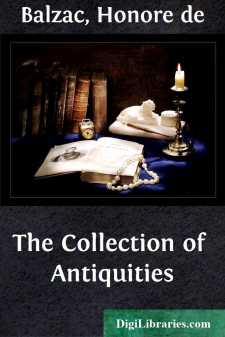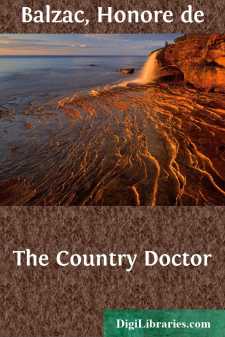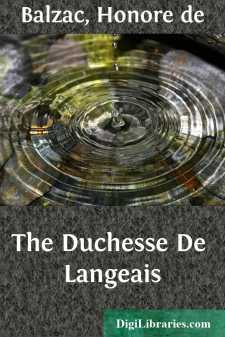Literary Collections
- American 84
- Ancient, Classical & Medieval 14
- Asian 1
- Australian & Oceanian 1
- Canadian 55
- Continental European
- English, Irish, Scottish, Welsh 179
- Essays 160
- General 24
- Letters 46
- Middle Eastern 1
Continental European Books
Sort by:
by:
Honore de Balzac
I. AN AMBUSCADE Early in the year VIII., at the beginning of Vendemiaire, or, to conform to our own calendar, towards the close of September, 1799, a hundred or so of peasants and a large number of citizens, who had left Fougeres in the morning on their way to Mayenne, were going up the little mountain of La Pelerine, half-way between Fougeres and Ernee, a small town where travellers along that road...
more...
by:
Honore de Balzac
THE COLLECTION OF ANTIQUITIES There stands a house at a corner of a street, in the middle of a town, in one of the least important prefectures in France, but the name of the street and the name of the town must be suppressed here. Every one will appreciate the motives of this sage reticence demanded by convention; for if a writer takes upon himself the office of annalist of his own time, he is bound to...
more...
by:
Honore de Balzac
THE COMMISSION IN LUNACY In 1828, at about one o'clock one morning, two persons came out of a large house in the Rue du Faubourg Saint-Honore, near the Elysee-Bourbon. One was the famous doctor, Horace Bianchon; the other was one of the most elegant men in Paris, the Baron de Rastignac; they were friends of long standing. Each had sent away his carriage, and no cab was to be seen in the street;...
more...
by:
Alfred de Musset
ALFRED DE MUSSET A poet has no right to play fast and loose with his genius. It does not belong to him, it belongs to the Almighty; it belongs to the world and to a coming generation. At thirty De Musset was already an old man, seeking in artificial stimuli the youth that would not spring again. Coming from a literary family the zeal of his house had eaten him up; his passion had burned itself out and...
more...
by:
Honore de Balzac
INTRODUCTION In hardly any of his books, with the possible exception of Eugenie Grandet, does Balzac seem to have taken a greater interest than in Le Medecin de Campagne; and the fact of this interest, together with the merit and intensity of the book in each case, is, let it be repeated, a valid argument against those who would have it that there was something essentially sinister both in his genius...
more...
by:
Honore de Balzac
I. ALL ELECTIONS BEGIN WITH A BUSTLE Before beginning to describe an election in the provinces, it is proper to state that the town of Arcis-sur-Aube was not the theatre of the events here related. The arrondissement of Arcis votes at Bar-sur-Aube, which is forty miles from Arcis; consequently there is no deputy from Arcis in the Chamber. Discretion, required in a history of contemporaneous manners and...
more...
by:
Honore de Balzac
THE DESERTED WOMAN In the early spring of 1822, the Paris doctors sent to Lower Normandy a young man just recovering from an inflammatory complaint, brought on by overstudy, or perhaps by excess of some other kind. His convalescence demanded complete rest, a light diet, bracing air, and freedom from excitement of every kind, and the fat lands of Bessin seemed to offer all these conditions of recovery....
more...
by:
Honore de Balzac
THE DUCHESSE OF LANGEAIS In a Spanish city on an island in the Mediterranean, there stands a convent of the Order of Barefoot Carmelites, where the rule instituted by St. Theresa is still preserved with all the first rigor of the reformation brought about by that illustrious woman. Extraordinary as this may seem, it is none the less true. Almost every religious house in the Peninsula, or in Europe for...
more...
by:
Honore de Balzac
THE ELIXIR OF LIFE One winter evening, in a princely palace at Ferrara, Don Juan Belvidero was giving a banquet to a prince of the house of Este. A banquet in those times was a marvelous spectacle which only royal wealth or the power of a mightly [sic] lord could furnish forth. Seated about a table lit up with perfumed tapers, seven laughter-loving women were interchanging sweet talk. The white marble...
more...
by:
Honore de Balzac
ALMAE SORORI In the year 1308 few houses were yet standing on the Island formed by the alluvium and sand deposited by the Seine above the Cite, behind the Church of Notre-Dame. The first man who was so bold as to build on this strand, then liable to frequent floods, was a constable of the watch of the City of Paris, who had been able to do some service to their Reverences the Chapter of the Cathedral;...
more...











